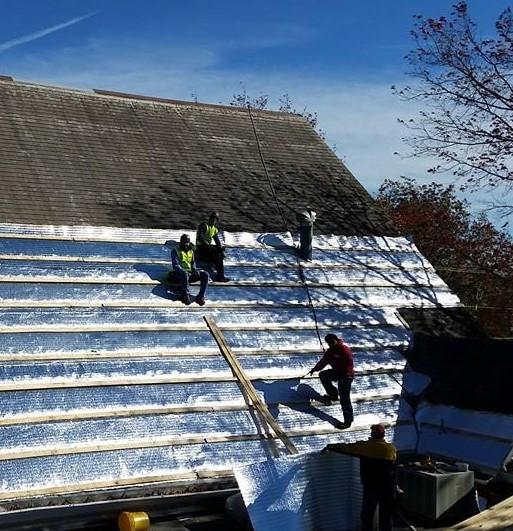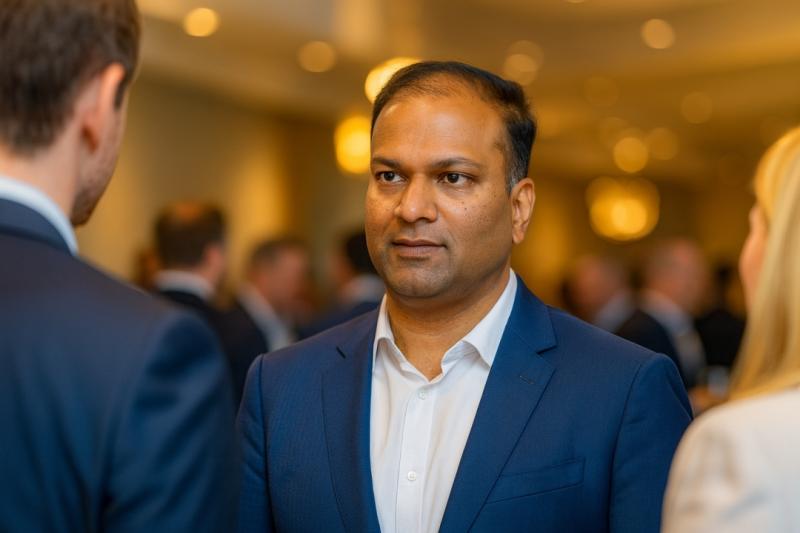Press release
Selva Unveils Cognitive DevOps: A New Era of Deep Learning-Driven Workflow Intelligence
Image: https://www.abnewswire.com/upload/2025/08/b79253543c8f752076b39f926fa411c0.jpgMr. Selva Kumar Ranganathan introduces a Smarter DevOps Model Powered by Deep Learning and Continuous Feedback.
In today's fast-paced digital environment, development teams are expected to deliver software faster, more reliably, and with fewer errors. But as systems grow in scale and complexity, traditional DevOps practices often fall short of keeping up with the dynamic demands of modern infrastructure and rapid release cycles.
To explore what lies beyond conventional automation, we had an in-depth conversation with Mr. Selva Kumar Ranganathan, a seasoned expert in software automation, AI integration, and intelligent systems. In this interview, he introduces Cognitive DevOps, a next-generation approach that enhances traditional DevOps by embedding deep learning models into the workflow. This method allows systems to learn from historical patterns, predict potential issues, and adaptively optimize deployments and operations in real time.
Cognitive DevOps aims not just to automate, but to elevate the decision-making process across the entire DevOps lifecycle. Through continuous feedback loops and data-driven insights, it empowers teams to move from reactive problem-solving to proactive and predictive operations.
In the following Q&A, Mr. Selva Kumar explains how this intelligent model works, what sets it apart, and why it could represent a major shift in how we think about software development, release management, and operational efficiency.
Image: https://www.abnewswire.com/upload/2025/08/a169a64b31d59f4395cfd6a524294620.jpg
Q: Selva, your work on Cognitive DevOps is getting a lot of attention. What led you to focus on this area?
Selva: It started with a question about how we can go beyond automation. Traditional DevOps has done a great job of speeding up development and deployment, but it still requires a lot of human decision-making. I was interested in how deep learning could help workflows learn from past experiences and improve over time. Cognitive DevOps is about building systems that can identify issues, predict risks, and adapt to changes using real data. That's what drew me in.
Q: In your paper "Cognitive DevOps: Applying Deep Learning for Intelligent Workflow Orchestration" what were the most important insights?
Selva: One key insight is that deep learning models can improve DevOps performance by predicting deployment risks, helping teams take corrective action early. In some test environments, we saw cycle time reduced by as much as 40 percent. Another takeaway is how AI can support better resource allocation and smarter test execution. For example, instead of running a full test suite, AI can suggest which tests are most relevant based on the latest code changes. That kind of precision helps reduce delays and unnecessary work.
Q: Your research on "AI-Driven Workflow Optimization in DevOps" also stood out. How do you see AI changing the way teams build and ship software?
Selva: I think AI is shifting DevOps from being reactive to being more predictive and proactive. Instead of waiting for an error to occur, we can now use AI to flag risky code changes or unusual patterns before they cause problems. AI can also help prioritize issues by impact, making it easier for teams to focus on what really matters. Over time, this leads to faster releases and fewer disruptions. It's not about replacing people, but giving teams tools that help them make better decisions.
Q: Cognitive DevOps relies heavily on data. What are the main challenges companies face when trying to implement it?
Selva: Data quality is a major challenge. For deep learning models to work well, they need clean, consistent, and well-labeled historical data. That's not always easy to get, especially in organizations with fragmented systems. Another challenge is cultural. Teams need to trust AI recommendations, which can be difficult if they don't understand how the models work. Integration is also something to think about. AI needs to fit naturally into existing pipelines without creating too much overhead or complexity.
Q: You recently received the "Asia International Research Award" award. What did that recognition mean to you and your team?
Selva: It was a great moment for the whole team. It felt good to see our work being recognized, especially because a lot of what we've done has been experimental. The award gave us a chance to share what we've learned with a larger audience. More than anything, it encouraged us to keep going and explore what else is possible.
Q: How do you validate that deep learning models in Cognitive DevOps are actually improving workflows?
Selva: That's an important step. We use a combination of historical benchmarking and A/B testing. For example, we compare release metrics like failure rate, rollback frequency, and cycle time before and after the model is introduced. In some cases, we run the model recommendations in parallel with the existing pipeline, but without acting on them at first, just to see if the predictions align with real outcomes. Over time, we collect enough data to confirm whether the model adds value or needs more tuning.
Q: What are some considerations when scaling Cognitive DevOps across larger organizations or multiple teams?
Selva: The biggest consideration is consistency. If teams are using different pipelines, tools, or data formats, it becomes hard to train and apply models effectively. Standardizing data collection and logging practices is a good starting point. You also need to think about model portability can the same model or logic be reused across different environments? And finally, training and onboarding are key. Teams need to understand how the AI layer works and how to respond to its suggestions. Scaling is as much about people as it is about technology.
Q: What trends do you expect to shape DevOps and deep learning over the next few years?
Selva: I think we'll see more real-time intelligence built into DevOps tools. AI will be used to automate not just alerts, but also responses to issues, like adjusting configurations or scaling resources automatically. We'll also see more focus on trust and explainability. Teams will want to understand why an AI system made a certain recommendation. Another trend is the growing connection between business metrics and DevOps metrics, where AI helps align software performance with customer outcomes.
Q: What kind of tools or platforms are essential when building a Cognitive DevOps pipeline?
Selva: It depends on the use case, but generally you need tools that support data collection, model training, and real-time inference. We've used platforms like TensorFlow and PyTorch for building models, combined with data pipelines in Apache Airflow or Kubeflow. For integration, tools like Jenkins, GitLab CI, or Azure DevOps still play a key role. The important thing is ensuring that the tools can communicate well and support automation across both machine learning and DevOps workflows.
Q: How does Cognitive DevOps affect collaboration between development and operations teams?
Selva: It actually improves collaboration because decisions become more data-driven and less subjective. For example, if a model flags a risky code change, it creates a clear talking point between developers and operations. Instead of debating opinions, teams can look at shared data and predictions. This encourages a more collaborative mindset, where both sides trust the system and work together to improve it. Over time, it builds a stronger feedback loop.
Q: Are there examples where Cognitive DevOps made a big difference in a real-world project?
Selva: Yes, we worked on a large-scale project for an e-commerce company where deployment issues were causing frequent rollbacks. After integrating a predictive model into their CI/CD pipeline, the system could identify risky changes based on past data and recommended rollback strategies before deployment. Within a few months, their rollback rate dropped by over 30 percent. It wasn't about adding more steps, just making smarter choices with the help of data.
Q: How do you approach security within a Cognitive DevOps framework?
Selva: Security is always part of the conversation. We train models not only on performance and reliability metrics but also on security-related data, like past vulnerability patterns or authentication failures. AI can help identify unusual behaviors earlier, which makes incident response faster. But it's also important to avoid over-reliance on automation. Human review and well-defined policies still matter, especially in high-risk areas like access control and data protection.
Q: How does monitoring change in a Cognitive DevOps environment?
Selva: Monitoring becomes more than just dashboards and alerts. With AI, we can add context to what's being monitored. Instead of just showing a spike in CPU usage, the system can correlate it with recent deployments, user activity, or config changes. It also helps predict future issues instead of only showing what's wrong right now. Monitoring becomes a feedback mechanism that supports learning, which is key for long-term reliability.
Q: What role does learning culture play in the success of Cognitive DevOps?
Selva: It's huge. Teams need to be open to experimentation, because not every model or prediction will be perfect from day one. Success often comes from iteration testing, learning, adjusting. Also, there needs to be a culture of shared ownership across dev, ops, and data science. That means celebrating small wins, learning from failed models, and making AI feel like a team member, not just a black box. When people are encouraged to learn, the technology tends to improve along with them.
Q: Finally, what advice would you give to someone starting out in this field?
Selva: Start by learning the basics of both DevOps and machine learning. You don't have to be an expert in both right away, but understanding how they connect is key. Build small projects to experiment and see what's possible. There's a lot of open-source tooling available that can help you get hands-on experience. Also, stay connected with the community, attend meetups or webinars, and keep learning. Things change quickly, and being curious makes all the difference.
Conclusion Note on the Interview with Mr. Selva Kumar Ranganathan:
In this insightful interview, Mr. Selva Kumar Ranganathan presents a forward-thinking vision for the future of DevOps through the introduction of Cognitive DevOps, a powerful fusion of deep learning, continuous feedback, and intelligent workflow orchestration. By embedding AI into every stage of the DevOps lifecycle, Selva's approach transforms software development from a reactive process into a proactive, adaptive, and data-driven discipline.
Key takeaways include the ability of AI to predict deployment risks, optimize testing, improve collaboration, and align technical operations with business outcomes. Selva emphasizes the critical role of data quality, cultural readiness, and cross-functional collaboration in successfully adopting Cognitive DevOps. He also shares real-world results, such as significant reductions in rollback rates and cycle times, showcasing the tangible value of this approach.
Ultimately, this interview marks a compelling shift in how software engineering can evolve, moving beyond automation to true intelligence-driven operations. Selva's work not only redefines efficiency but also paves the way for more resilient, agile, and context-aware systems. For professionals looking to stay ahead, Cognitive DevOps offers both a roadmap and a mindset for the future of intelligent software delivery.
Media Contact
Company Name: CB Herald
Contact Person: Ray
Email:Send Email [https://www.abnewswire.com/email_contact_us.php?pr=selva-unveils-cognitive-devops-a-new-era-of-deep-learningdriven-workflow-intelligence]
City: Baltimore
State: Maryland
Country: United States
Website: http://cbherald.com
Legal Disclaimer: Information contained on this page is provided by an independent third-party content provider. ABNewswire makes no warranties or responsibility or liability for the accuracy, content, images, videos, licenses, completeness, legality, or reliability of the information contained in this article. If you are affiliated with this article or have any complaints or copyright issues related to this article and would like it to be removed, please contact retract@swscontact.com
This release was published on openPR.
Permanent link to this press release:
Copy
Please set a link in the press area of your homepage to this press release on openPR. openPR disclaims liability for any content contained in this release.
You can edit or delete your press release Selva Unveils Cognitive DevOps: A New Era of Deep Learning-Driven Workflow Intelligence here
News-ID: 4152691 • Views: …
More Releases from ABNewswire

PraiseOne.com Goes Up for Auction - 100% of Proceeds to Fuel Utah Revival
"Acquire a major Christian brand-and simultaneously support a ministry in its mission."
ST. GEORGE, UT, UNITED STATES - November 12, 2025 - The silent owner of PraiseOne.com has been moved to act on faith - donating every dollar from the domain's auction to support what he describes as a powerful move of God unfolding in Utah. The revival, centered in a church fittingly named Revival City , has become the site…

Buy Wholesale Cabinets Unveils Limited-Time Black Friday Offer for Shoppers
Leading RTA Cabinet Retailer Announces Black Friday Sale for RTA Cabinets
DALLAS, UNITED STATES - November 12, 2025 - Buy Wholesale Cabinets, a well-known Dallas-based retail brand specializing in cabinetry, is launching an exclusive Black Friday promotion with 30% off the entire range of RTA (ready-to-assemble) cabinets. During the Black Friday period, customers can purchase high-quality kitchen cabinets at significantly reduced prices.
Buy Wholesale Cabinets [https://buywholesalecabinets.com/] has launched this sale to help…

Childlike Hearts, Warm Company | Kinghelm & Slkor Parent-Child Event Successfull …
On November 8th, Kinghelm and Slkor welcomed 19 employees' children for a "Visiting Mom and Dad's New Office" event. Accompanied by their parents, the children explored the office, taking part in interactive games and tours to experience their parents' workplace. The event fostered parent-child bonding and reflected the company's commitment to supporting employees' families, creating a warm and engaging atmosphere for all.
On November 8th, the new headquarters office area of…

Ozark Mountain Roofing Named Bentonville Pinnacle Service Award Winner - Elevati …
The award signifies that the company has not only met but consistently exceeded the industry's highest standards for safety, durability, and customer satisfaction, marking a new milestone for local service providers.
A Mark of Distinction for Quality Roof Repair
The structural integrity and long-term security of a home or business in the challenging climate of Northwest Arkansas depends heavily on the quality of its roof. Recognizing excellence in this vital area, the…
More Releases for DevOps
Top Trends Transforming the DevOps Market Landscape in 2025: Technological Advan …
Stay ahead with our updated market reports featuring the latest on tariffs, trade flows, and supply chain transformations.
What Will the DevOps Industry Market Size Be by 2025?
In recent years, the DevOps market has experienced exponential growth. The market, which was valued at $12.54 billion in 2024, will rise to $15.06 billion in 2025, recording a compound annual growth rate (CAGR) of 20.1%. This surge during the historical period can be…
iProgrammer Solutions Powers Vodafone Idea's Award-Winning AI DevOps Project at …
Mumbai, May 29, 2025 - iProgrammer Solutions Pvt. Ltd. is proud to announce its instrumental role as the technology partner behind Vodafone Idea Limited's recent win at the India DevOps Show organized by Quantic Business Media Pvt. Ltd. On May 23rd, Vodafone Idea was honored with the "Best Use of AI in DevOps (Telecom)" award, recognizing their groundbreaking use of Artificial Intelligence in transforming telecom DevOps practices.
This prestigious accolade is…
AllCode Achieves AWS DevOps Competency
AllCode is pleased to announce that it has achieved the DevOps Competency from AWS, a prestigious certification that recognizes its status as a global leader in digital innovation and technological solutions. This award recognizes AllCode's competence in providing innovative DevOps solutions that improve automation, scalability, and security for enterprises globally.
What does this mean to the clients?
With their AWS DevOps Competency under their belt, AllCode proves they can give clients solid…
DevOps Market: Accelerating Digital Transformation
The DevOps market has experienced significant growth in recent years, driven by the increasing demand for faster and more reliable software delivery. DevOps is a set of practices that combines software development and IT operations to shorten the software development life cycle and 1 improve software quality.
Market Size and Growth
The global DevOps market is estimated to be worth billions of dollars, with a significant portion of the…
Top 10 Devops Consulting Companies
In the dynamic realm of generation, DevOps sticks out as a transformative pressure. The top DevOps consulting companies, featured on this listing, function as guiding lighting fixtures for organizations navigating the evolution. Armed with strategic insights and technical know-how, these experts streamline development methods, foster collaboration, and beef up IT operations.
By aligning with those trailblazing consultancies, agencies role themselves at the forefront of innovation, reshaping the destiny of software program…
Azure-DevOps Online Course - Become a DevOps Expert.
Azure DevOps, because of its amazing Project Management capabilities is becoming the most demanding tool in the market now. Be it automating CI/CD, be it automating IAC, be it integration with code repo, it has now matured enough to handle all of these. Companies are very much serious about adopting this and so the hiring numbers have touched a peak. 2020 is just a start, so before its too late…
